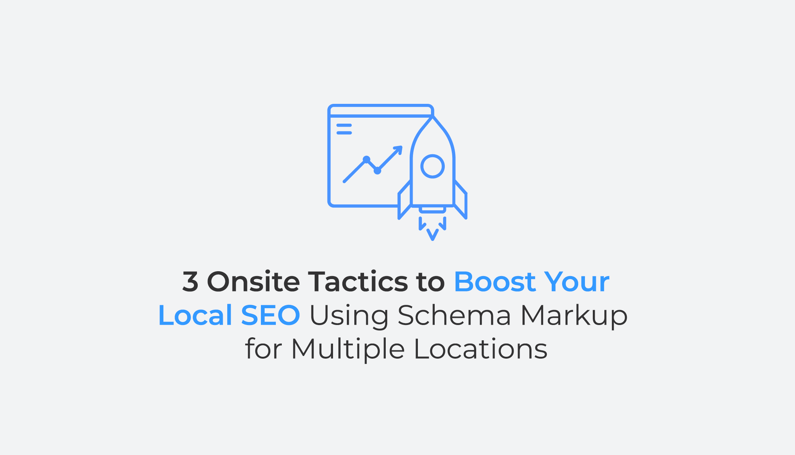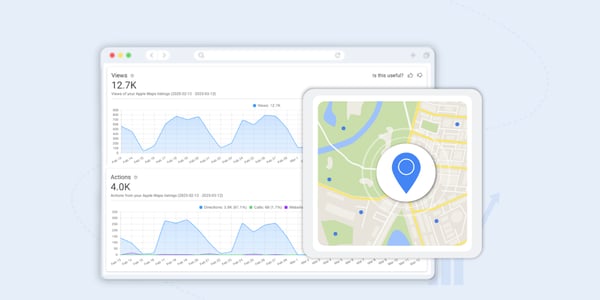Multi-location brands have a unique challenge: making each location stand out in the digital space. Local SEO, particularly onsite tactics, can ensure that every branch gets its chance to shine. Among the most powerful of these tactics is schema markup.

Key Onsite Tactics for Multi-Location Brands' Local SEO
Local SEO helps businesses improve their visibility in local search results, increase website traffic, and drive more foot traffic to their physical locations. Similar to the general SEO, Local SEO is also about online visibility, just directed towards each of your locations. And here, onsite tactics play a significant role.
1. Local Landing Pages
Create unique local landing pages for each of your locations. This not only offers a personalized touch for users but also provides valuable local content. Consider adding features like embedded maps, reviews, and localised offers as well as optimizing your local landing page URL - best if you can narrow it down to the specific market, region, or even district if you have multiple physical addresses, e.g. ''pinmeto.com/ portugal/ lisbon.''Include relevant information such as the address, phone number, business hours, and a brief description of each location. Make sure you use your keywords to optimise the content on each local page.
2. On-Page Optimisations
This includes optimising your title tags, meta descriptions, and headers with relevant keywords. Especially for brands with multiple locations, it is important to consider adding a store locator or a map widget to make it easier for customers to find your different locations. This will make it easy for visitors to find the nearest branch, increasing in-store visits.3. Schema Markup
Schema markup is a code that you can add to your website to provide search engines with additional information about your business. Think of schema markup as a cheat sheet for the search engines giving them the most important details about your business.
It uses a standardised vocabulary called Schema.org to define different types of data, such as addresses, phone numbers, and business hours.
Download our Local SEO Checklist covering all businesses need to know for gaining strong local visibility.
How Schema Markup Can Benefit Multi-Location Brands
Making sure your schema markup and GBP are in sync can help you improve your online presence and might even speed up the GBP verification process. The goal is to ensure that all information, from your opening hours to the services you offer, is consistent across both platforms. This will bring you a number of benefits including:- Enhanced user experience: Schema markup enables search engines to display rich snippets, such as star ratings and business hours, in search results. This provides users with more information and encourages them to click on your website.
- Increased click-through rates (CTRs): Rich snippets attract more attention in search results, leading to higher CTRs. This means more potential customers visiting your website.
- Building Trust: When the information in your schema markup matches the details on your website and your Google Business Profile (GBP), it tells search engines that your brand is trustworthy.
Ready for Location Marketing Made Simple?
Types of Schema Markup for Multiple Locations
There are several types of schema markup that you can implement for your business, depending on your specific needs. Some common types of schema markup that can be useful for brands with multiple locations include:
WebSite
To achieve a strong online presence, make sure you use the primary WebSite schema markup, regardless of the number of locations or the markets you operate. Consider using it in conjunction with other schema markups to provide additional information about your business's online presence.LocalBusiness
If your brand operates physical stores, the Local Business schema markup for multiple locations is the most appropriate choice. It is mainly used to describe a local business, such as a store or restaurant, with a physical location.Organisation
If your business operates in multiple areas but doesn't have physical stores, the Organization schema markup may be more suitable than LocalBusiness. This one is used to describe an organisation that provides services in multiple locations, such as a franchise or chain.FAQ
Use FAQ Schema to put down answers to common questions and objections your potential customers might have about your product or service.Review
Implement review schema to display star ratings and review snippets in search results, enhancing your visibility and credibility.
To Sum Up
With the right onsite tactics, including local business local schema for multiple locations, brands can enhance their online presence in the digital space. By providing search engines with accurate and structured information about your business, you increase your chances of appearing in local search results and outranking your competitors.
Looking for ways to level up your local visibility?
Give us an overview about your business below and we'll prepare a free local visibility audit
Lily Adamyan, October 6


